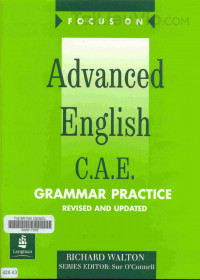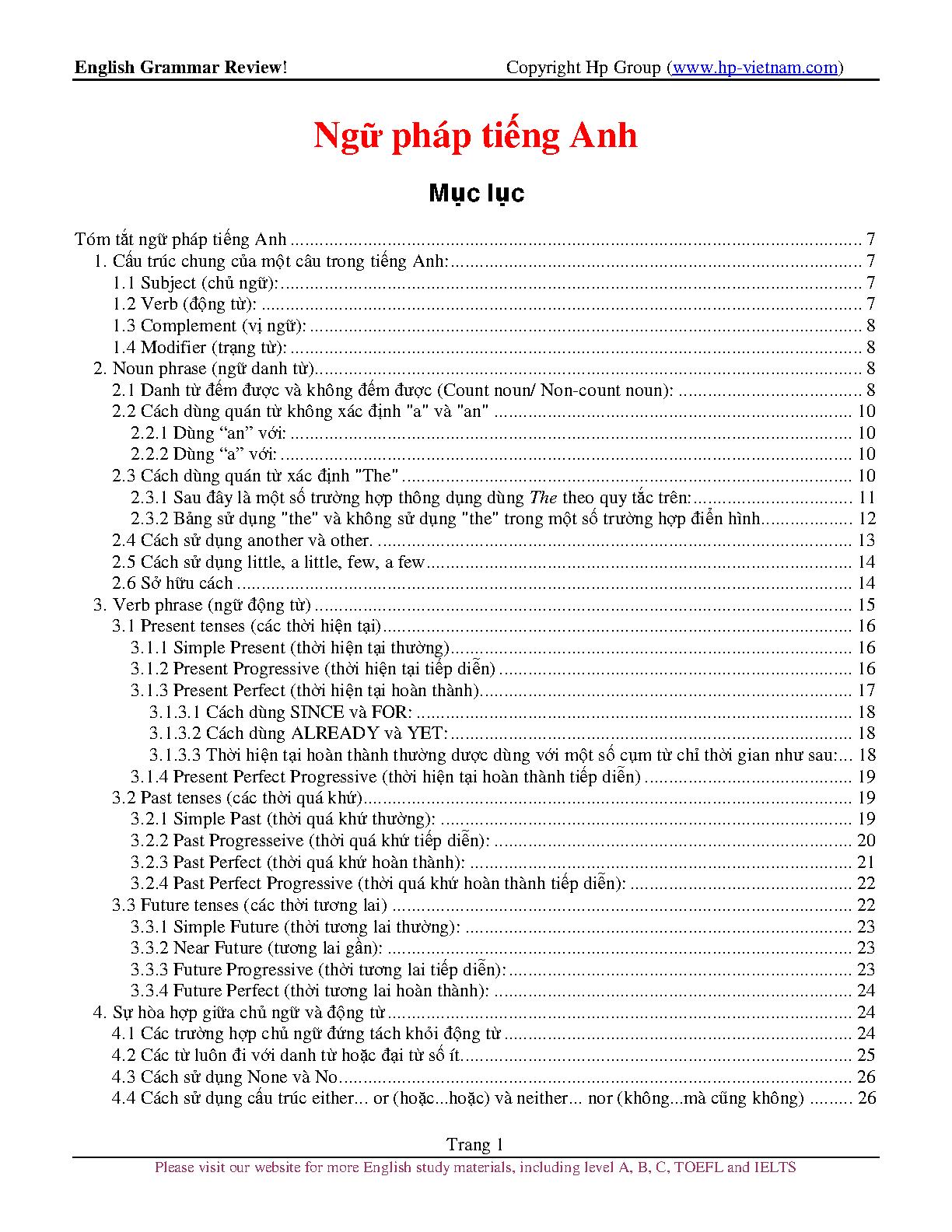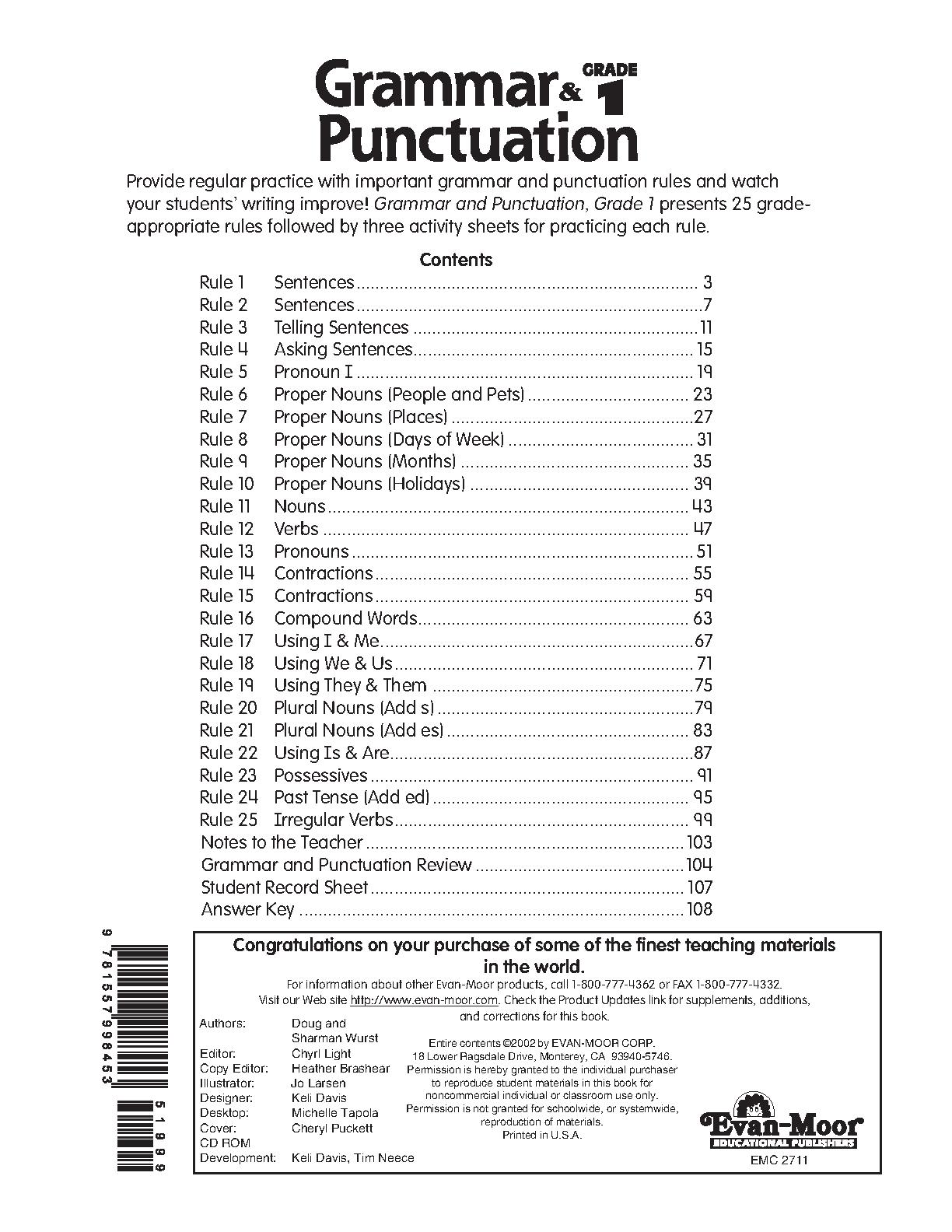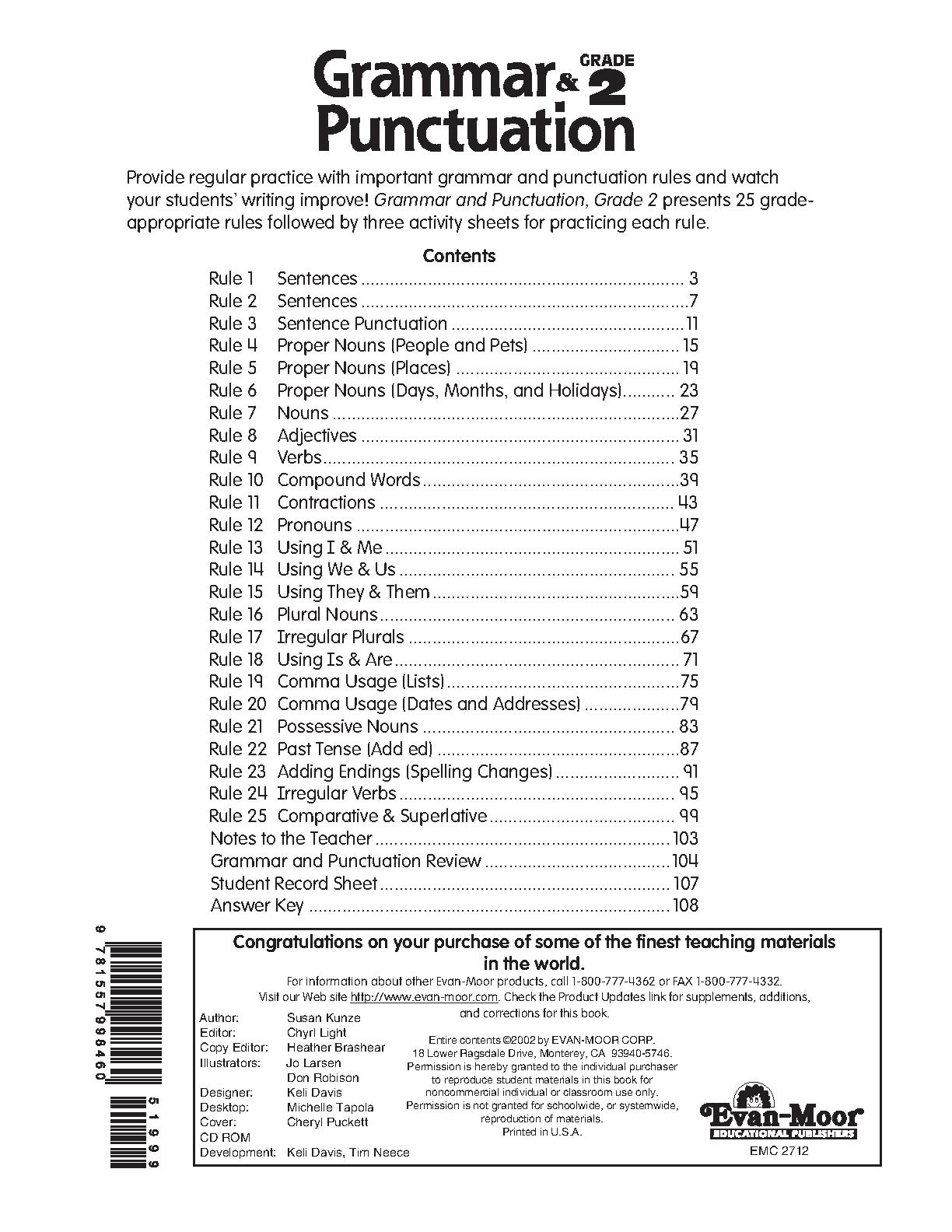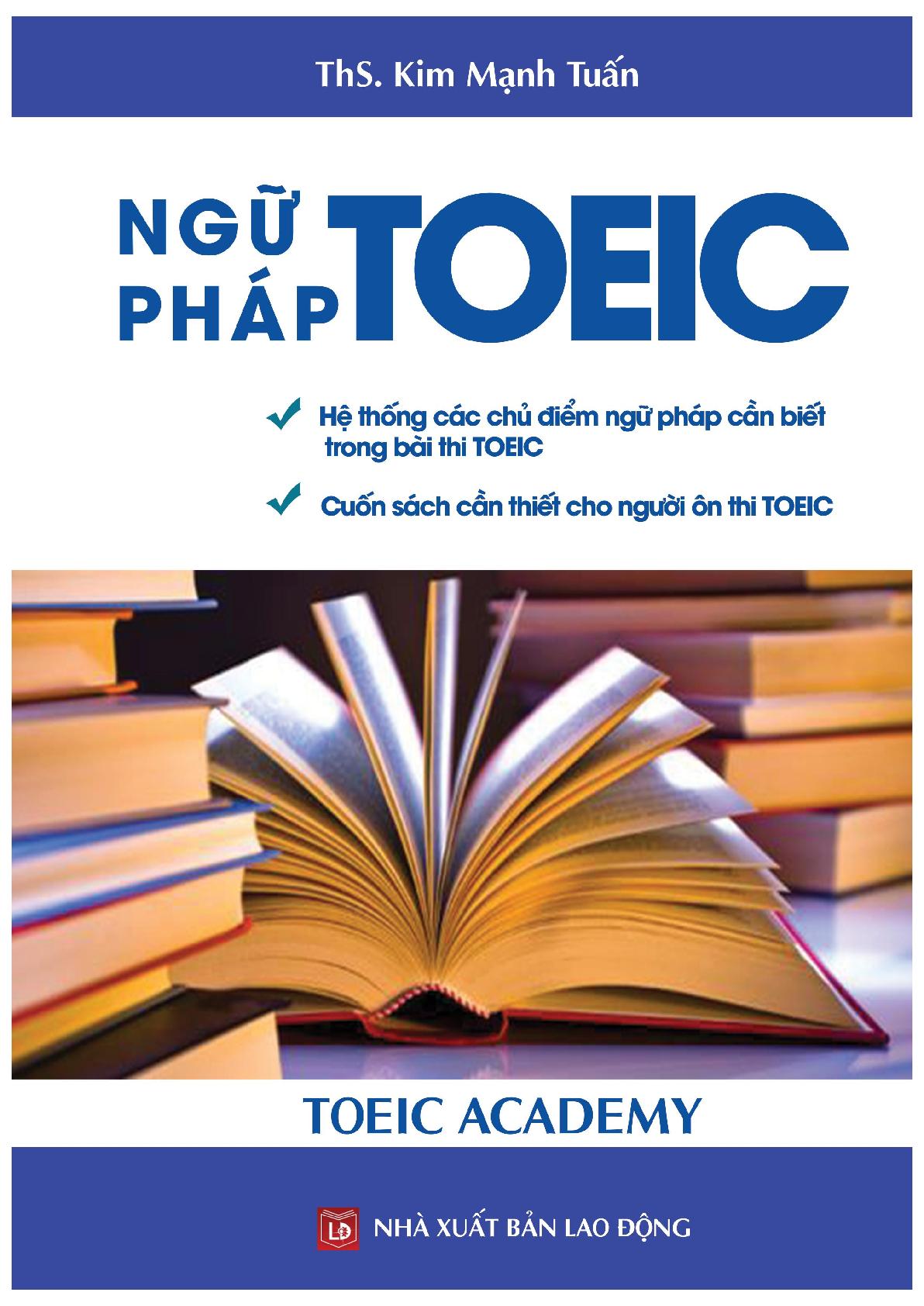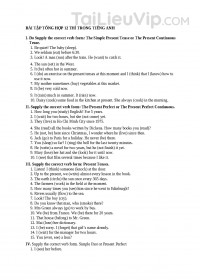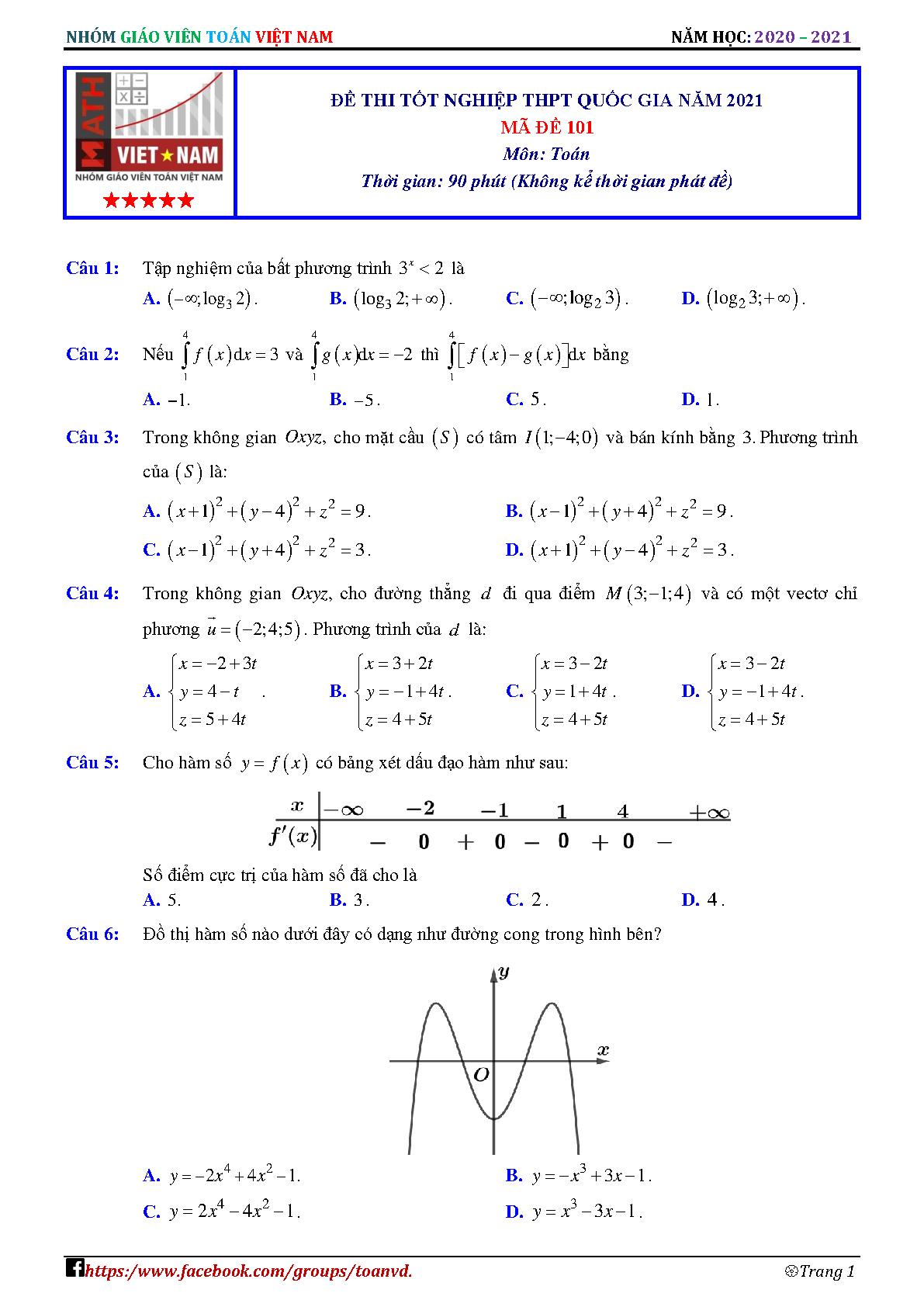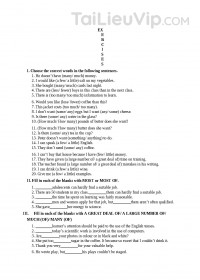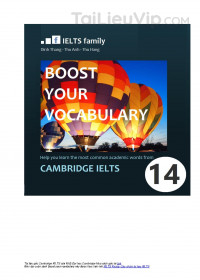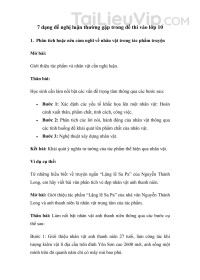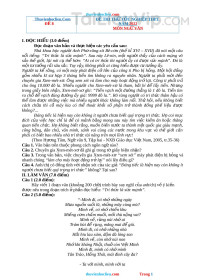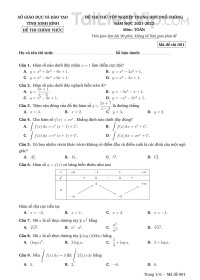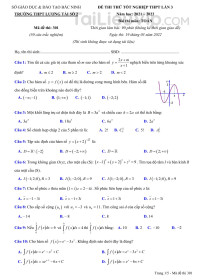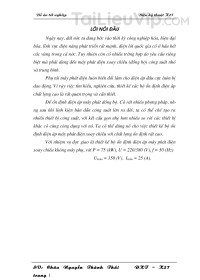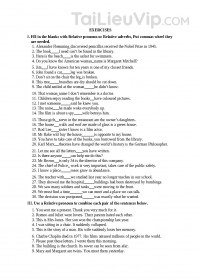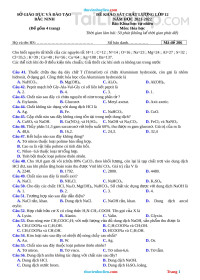Tải sách Grammar and Punctuation, Grade 6
1,033 7

Tải về máy để xem đầy đủ hơn, bản xem trước là bản PDF
Tags: #tài liệu tiếng anh#Grammar and Punctuation#sách ngữ pháp
Mô tả chi tiết
Tải sách Grammar and Punctuation, Grade 6
Rule 1 Kinds of Sentences...................................................................... 3
Rule 2 Subjects & Predicates ................................................................. 7
Rule 3 Compound Sentences ............................................................... 11
Rule 4 Common & Proper Nouns; Singular & Plural Nouns ...............15
Rule 5 Plural Noun Forms .....................................................................19
Rule 6 Verbs..........................................................................................23
Rule 7 Verb Tenses............................................................................... 27
Rule 8 Forming Verb Tenses .................................................................31
Rule 9 Types of Pronouns.....................................................................35
Rule 10 Types of Pronouns..................................................................... 39
Rule 11 Pronouns & Antecedents..........................................................43
Rule 12 Possessive Nouns & Pronouns................................................. 47
Rule 13 Adjectives ...................................................................................51
Rule 14 Comparative & Superlative Adjectives.....................................55
Rule 15 Adverbs ..................................................................................... 59
Rule 16 Prepositions...............................................................................63
Rule 17 Prepositional Phrases ............................................................... 67
Rule 18 Comma Usage...........................................................................71
Rule 19 Comma Usage.......................................................................... 75
Rule 20 Commas & Colons.................................................................... 79
Rule 21 Comma Usage (Appositives)....................................................83
Rule 22 Quotation Marks ....................................................................... 87
Rule 23 Titles............................................................................................91
Rule 24 Word Usage ..............................................................................95
Rule 25 Word Usage .............................................................................. 99
Notes to the Teacher ..............................................................................103
Answer Key .............................................................................................105
Rule 1 Kinds of Sentences...................................................................... 3
Rule 2 Subjects & Predicates ................................................................. 7
Rule 3 Compound Sentences ............................................................... 11
Rule 4 Common & Proper Nouns; Singular & Plural Nouns ...............15
Rule 5 Plural Noun Forms .....................................................................19
Rule 6 Verbs..........................................................................................23
Rule 7 Verb Tenses............................................................................... 27
Rule 8 Forming Verb Tenses .................................................................31
Rule 9 Types of Pronouns.....................................................................35
Rule 10 Types of Pronouns..................................................................... 39
Rule 11 Pronouns & Antecedents..........................................................43
Rule 12 Possessive Nouns & Pronouns................................................. 47
Rule 13 Adjectives ...................................................................................51
Rule 14 Comparative & Superlative Adjectives.....................................55
Rule 15 Adverbs ..................................................................................... 59
Rule 16 Prepositions...............................................................................63
Rule 17 Prepositional Phrases ............................................................... 67
Rule 18 Comma Usage...........................................................................71
Rule 19 Comma Usage.......................................................................... 75
Rule 20 Commas & Colons.................................................................... 79
Rule 21 Comma Usage (Appositives)....................................................83
Rule 22 Quotation Marks ....................................................................... 87
Rule 23 Titles............................................................................................91
Rule 24 Word Usage ..............................................................................95
Rule 25 Word Usage .............................................................................. 99
Notes to the Teacher ..............................................................................103
Answer Key .............................................................................................105

Nội dung
Congratulations on your purchase of some of the fi nest teaching materials in the world. For information about other Evan-Moor products, call 1-800-777-4362 or FAX 1-800-777-4332. Visit our Web site http://www.evan-moor.com. Check the Product Updates link for supplements, additions, and corrections for this book. Entire contents ©2002 by EVAN-MOOR CORP.18 Lower Ragsdale Drive, Monterey, CA 93940-5746.Permission is hereby granted to the individual purchaser to reproduce student materials in this book for noncommercial individual or classroom use only. Permission is not granted for schoolwide, or systemwide, reproduction of materials. Printed in U.S.A.Author: Delana HeidrichEditor: Chyrl Light Copy Editor: Cathy HarberDesigner: Keli DavisDesktop: Michelle TapolaCover: Cheryl PuckettCD ROMDevelopment: Keli Davis, Tim NeeceEMC 2716Provide regular practice with important grammar and punctuation rules and watch your students’ writing improve!Grammar and Punctuation, Grade 6 presents 25 grade-appropriate rules followed by three activity sheets for practicing each rule.ContentsRule 1 Kinds of Sentences...................................................................... 3Rule 2 Subjects & Predicates ................................................................. 7Rule 3 Compound Sentences ............................................................... 11Rule 4 Common & Proper Nouns; Singular & Plural Nouns ............... 15Rule 5 Plural Noun Forms ..................................................................... 19Rule 6 Verbs .......................................................................................... 23Rule 7 Verb Tenses ............................................................................... 27Rule 8 Forming Verb Tenses ................................................................. 31Rule 9 Types of Pronouns ..................................................................... 35Rule 10 Types of Pronouns ..................................................................... 39Rule 11 Pronouns & Antecedents .......................................................... 43Rule 12 Possessive Nouns & Pronouns................................................. 47Rule 13 Adjectives ...................................................................................51Rule 14 Comparative & Superlative Adjectives ..................................... 55Rule 15 Adverbs ..................................................................................... 59Rule 16 Prepositions ............................................................................... 63Rule 17 Prepositional Phrases ............................................................... 67Rule 18 Comma Usage ........................................................................... 71Rule 19 Comma Usage .......................................................................... 75Rule 20 Commas & Colons .................................................................... 79Rule 21 Comma Usage (Appositives).................................................... 83Rule 22 Quotation Marks ....................................................................... 87Rule 23 Titles ............................................................................................ 91Rule 24 Word Usage .............................................................................. 95Rule 25 Word Usage .............................................................................. 99Notes to the Teacher ..............................................................................103Answer Key .............................................................................................105GRADE6©2002 by Evan-Moor Corp. 1 Grammar and Punctuation, Grade 6 • EMC 2716? igiypgkqgragWo ngkqgfinrhp®gVyrdgkqe7UfgwoailradgsoiygMrafioBdglafigflwU9gmno!nlud®gQo ngwoum ipngBr22gnpwo!arYpgiypgwonnpwigmno!nlu®Uagdoupgwoum ipnd.giypgmno!nlugBr22gl ioulirwl22Wgdilnig m®g•tgiypgmno!nlugfiopdgaoigdilnigl ioulirwl22WFWindows— go to My Computer, double click on the CD drive, then double click on Begin.exe.MacOS— double click on the CD icon on your desktop, then double click on Begin. After the program starts, you will arrive at the main menu.321About the BookThe features of Grammar and Punctuation, Grade 6 include:25 Rule ChartsReproduce these charts on overhead transparencies for ease of presentation.Choose the rules and the order of use that are appropriate to the needs of your students. Review the charts regularly.3 Practice Pages for Each RuleUse as many reproducible practice pages as appropriate for your students. These pages may be used with the whole class or as independent practice. You may wish to do a single practice page each time you review a rule.Answer KeyA complete answer key begins on page 105.About the CD-ROMLoading the Programrammar and Punctuation • Grammar and Punctuation • Grammar and Punctuation • Grammar and PunctRule©2002 by Evan-Moor Corp. 3 Grammar and Punctuation, Grade 6 • EMC 27161There are four kinds of sentences. Each kind requires a specific ending punctuation. • A declarative sentence is a statement. It ends with a period (.).Many kinds of penguins are found in Antarctica. • An interrogative sentence asks a question. It ends with a question mark (?).Do all penguins live on that icy continent? • An imperative sentence commands someone to do something. It ends with a period (.).Sit down here and listen to me. • An exclamatory sentence shows strong feeling. It ends with an exclamation mark (!).What a big surprise!Kinds of SentencesRuleName_____________________________________________©2002 by Evan-Moor Corp. 6 Grammar and Punctuation, Grade 6 • EMC 27161Write All About TtPractice writing each kind of sentence below using the given topics. Be sure to use correct end punctuation. The following sentences have been completed for you as an example.Write one of each kind of sentence about movies.declarative: Beauty and the Beast is a Disney movie.interrogative: What is your favorite movie?imperative: Tell me about the best music score you’ve ever heard in a movie.exclamatory: Wow, the special effects in that movie were awesome!Write one of each kind of sentence about music.declarative: _____________________________________________________________________________interrogative: ____________________________________________________________________________imperative: ______________________________________________________________________________exclamatory: ____________________________________________________________________________Write one of each kind of sentence about sports.declarative: _____________________________________________________________________________interrogative: ____________________________________________________________________________imperative: ______________________________________________________________________________ exclamatory: ____________________________________________________________________________RuleName_____________________________________________©2002 by Evan-Moor Corp. 5 Grammar and Punctuation, Grade 6 • EMC 27161Punctuate a ParagraphA Add the correct end punctuation to the sentences in the following paragraph.Wartime InventionsB Now name the types of sentences used in the paragraph above: declarative (statements), interrogative (questions), imperative (commands), and exclamatory (strong feelings). Write your responses on the lines provided.Sentence 1 ______________________ Sentence 6 _______________________ Sentence 2 ______________________ Sentence 7 _______________________ Sentence 3 ______________________ Sentence 8 _______________________ Sentence 4 ______________________ Sentence 9 _______________________ Sentence 5 ______________________ 1 Have you ever wondered about the origins of common household products 2 It’s amazing how many popular products grew out of wartime inventions 3 Consider canned foods 4 Foods were first preserved in tin cans for use by the British navy during the Napoleonic Wars 5 Many other products claim military births 6 The materialin Kleenex™ tissues was first used to make air filters in gas masks for World War I soldiers 7 Both the Slinky™ and Silly Putty™ grew out of World War II research8 Study the history of some of your favorite products 9 Were they wartime inventions tooRuleName_____________________________________________ ©2002 by Evan-Moor Corp. 4 Grammar and Punctuation, Grade 6 • EMC 27161End T t Rightdeclarative – tells somethinginterrogative – asks somethingimperative – commands or requests somethingexclamatory – expresses strong feelingAdd the correct end punctuation to each sentence. Identify each sentence by type. 1. School Web sites are cool __________________________ 2. Many schools have fascinating and informative Web sites __________________________ 3. Does your school have a Web site __________________________ 4. Creating a school Web site is fun __________________________ 5. Create one for your school __________________________ 6. Your school’s computer teacher can help you get started __________________________ 7. Start by creating a colorful home page __________________________ 8. Some school Web sites include information on school events, special class projects, and school policies __________________________ 9. What would you like to see on your school’s Web site __________________________ 10. Make it happen __________________________.?!.©2002 by Evan-Moor Corp. 2 Grammar and Punctuation, Grade 6 • EMC 2716Click the Choose a Rule button to display the list of rules.Click on a rule in the list of rules. The rule will be displayed.Click on the arrow button. Rule explanations and examples will be displayed.321When you’re finished, click on giog!ogslwvgiogiypgn 2pdg2rdigongw2rwvgoaggiog!ogslwvgiogiypgulragupa ®4Installing Adobe® Acrobat® Reader™You need to have Acrobat Reader installed on your computer to access the e-book portion of the CD-ROM. If you do not have Acrobat Reader, go to the main menu of the CD and follow these instructions: 1. Place your cursor over the Click Here link. Wait for the hand and then click. 2. When you see the Acrobat Reader Setup Screen, click the “Next” box. 3. When you see the Destination Location Screen, click the “Next” box. 4. When you see the Setup Complete Screen, click “finish.”Your system will now shut down in order to install Acrobat Reader. Some systems will automatically restart. If yours does not, start it up manually.Main Menu FeaturesChoose a Rule It’s never been more fun to practice grammar and punctuation! The 25 rule charts found in the book are presented in full-color with an interactive element. To present a whole-class lesson, connect your computer to a projection system. As a review, students may be instructed on how to access specific rule charts during their computer time. View the E-Book• The rule charts, practice pages, and answer key are presented in a printable electronic format. You must have Adobe® Acrobat® Reader™ installed to access the e-book. (See installation instructions in sidebar.)• You may scroll through the entire book page by page or open the “Bookmarks” tab for a clickable table of contents. Hint: This symbol, + for Windows or rFyorfiniPEprgcnamrsAnsrwylrinariL iIrsAcocrsyrc3.natrsA mrinsc5yowR• To print pages from the e-book, click on the printer icon. A print dialog box will open. Enter the page or pages you wish to print in the print range boxes. (At the bottom of the screen, you can see which page of the e-book you are viewing.)• To exit the e-box, simply “X” out until you return to the main menu.E-Book Bonus• Grammar and Punctuation Review This four-page review provides a means of evaluating your students’ acquisition of the grammar and punctuation skills presented. • Student Record SheetOn the student record sheet, the grammar and punctuation skills are keyed to the practice pages and the test items. • Reproducible Rules HandbookEach rule is shown with room for students to write their own examples of the rule.ExitThis button closes the program.Grammar and Punctuation • Grammar and Punctuation • Grammar and Punctuation • Grammar and PunctuaRule©2002 by Evan-Moor Corp. 3 Grammar and Punctuation, Grade 6 • EMC 27161There are four kinds of sentences. Each kind requires a specific ending punctuation. • A declarative sentence is a statement. It ends with a period (.).Many kinds of penguins are found in Antarctica. • An interrogative sentence asks a question. It ends with a question mark (?).Do all penguins live on that icy continent? • An imperative sentence commands someone to do something. It ends with a period (.).Sit down here and listen to me. • An exclamatory sentence shows strong feeling. It ends with an exclamation mark (!).What a big surprise!Kinds of SentencesRuleName_____________________________________________ ©2002 by Evan-Moor Corp. 4 Grammar and Punctuation, Grade 6 • EMC 27161End It Rightdeclarative – tells somethinginterrogative – asks somethingimperative – commands or requests somethingexclamatory – expresses strong feelingAdd the correct end punctuation to each sentence. Identify each sentence by type. 1. School Web sites are cool __________________________ 2. Many schools have fascinating and informative Web sites __________________________ 3. Does your school have a Web site __________________________ 4. Creating a school Web site is fun __________________________ 5. Create one for your school __________________________ 6. Your school’s computer teacher can help you get started __________________________ 7. Start by creating a colorful home page __________________________ 8. Some school Web sites include information on school events, special class projects, and school policies __________________________ 9. What would you like to see on your school’s Web site __________________________ 10. Make it happen __________________________.?!.RuleName_____________________________________________©2002 by Evan-Moor Corp. 5 Grammar and Punctuation, Grade 6 • EMC 27161Punctuate a ParagraphA Add the correct end punctuation to the sentences in the following paragraph.Wartime InventionsB Now name the types of sentences used in the paragraph above: declarative (statements), interrogative (questions), imperative (commands), and exclamatory (strong feelings). Write your responses on the lines provided.Sentence 1 ______________________ Sentence 6 _______________________ Sentence 2 ______________________ Sentence 7 _______________________ Sentence 3 ______________________ Sentence 8 _______________________ Sentence 4 ______________________ Sentence 9 _______________________ Sentence 5 ______________________ 1 Have you ever wondered about the origins of common household products 2 It’s amazing how many popular products grew out of wartime inventions 3 Consider canned foods 4 Foods were first preserved in tin cans for use by the British navy during the Napoleonic Wars 5 Many other products claim military births 6 The materialin Kleenex™ tissues was first used to make air filters in gas masks for World War I soldiers 7 Both the Slinky™ and Silly Putty™ grew out of World War II research8 Study the history of some of your favorite products 9 Were they wartime inventions tooRuleName_____________________________________________©2002 by Evan-Moor Corp. 6 Grammar and Punctuation, Grade 6 • EMC 27161Write All About ItPractice writing each kind of sentence below using the given topics. Be sure to use correct end punctuation. The following sentences have been completed for you as an example.Write one of each kind of sentence about movies.declarative: Beauty and the Beast is a Disney movie.interrogative: What is your favorite movie?imperative: Tell me about the best music score you’ve ever heard in a movie.exclamatory: Wow, the special effects in that movie were awesome!Write one of each kind of sentence about music.declarative: _____________________________________________________________________________interrogative: ____________________________________________________________________________imperative: ______________________________________________________________________________exclamatory: ____________________________________________________________________________Write one of each kind of sentence about sports.declarative: _____________________________________________________________________________interrogative: ____________________________________________________________________________imperative: ______________________________________________________________________________ exclamatory: ____________________________________________________________________________Grammar and Punctuation • Grammar and Punctuation • Grammar and Punctuation • Grammar and PunctuaRule©2002 by Evan-Moor Corp. 7 Grammar and Punctuation, Grade 6 • EMC 27162Subjects & PredicatesEvery complete sentence has a subject and a predicate. • Subject—names the person, place, or thing the sentence is about. The complete subject contains all the words that tell who or what the sentence is about. The simple subject is the main noun or pronoun in the subject. simple subjectOur crazy dog howled at the wind. complete subject • Predicate—tells what the subject is or does. The complete predicate contains all the words that tell what the subject is or does. The simple predicate is the verb of the sentence. simple predicateEric and Marshall raced down the street. complete predicateRuleName_____________________________________________ ©2002 by Evan-Moor Corp. 8 Grammar and Punctuation, Grade 6 • EMC 27162Find the SubjectUnderline the complete subject in each sentence. Circle the simple subject in each sentence. 1. My best friend lives in Thailand. 2. Her name is Roongthip. 3. Roongthip’s name means “Rainbow” in Thai. 4. Roongthip’s culture is different from mine. 5. Thai money looks different from United States money. 6. The Thai language uses a different alphabet. 7. Thai foods use different spices from those I am used to. 8. Thai cities are fi lled with intricate architecture. 9. Roongthip’s world is different from mine. 10. My friend and I love learning about each other’s cultures.RuleName_____________________________________________ ©2002 by Evan-Moor Corp. 9 Grammar and Punctuation, Grade 6 • EMC 27162Find the PredicateUnderline the complete predicate in each sentence. Circle the simple predicate in each sentence. 1. My school offers many extra clubs and classes. 2. My brother plays chess with the chess club. 3. My friend Sam plays baseball. 4. I sing with the school choir. 5. Members of the Community Service Club visit elderly people who live alone. 6. They also pick up litter around our town. 7. Members of the journalism class write our school newspaper. 8. The school marching band marches in parades. 9. The pep band plays at football games. 10. Everyone participates in something special at our school.RuleName_____________________________________________ ©2002 by Evan-Moor Corp. 10 Grammar and Punctuation, Grade 6 • EMC 27162Sentence or Not?Decide whether each group of words below is a complete sentence. If the group of words is a complete sentence, capitalize the fi rst letter of the fi rst word and add the correct end punctuation. If the group of words is not a complete sentence, add a subject or predicate to create a complete sentence using the group of words presented. 1. living in Texas ____________________________________________________________________________ 2. karen is going to Disneyland this summer ____________________________________________________________________________ 3. i love strawberries ____________________________________________________________________________ 4. my uncle and my cousins ____________________________________________________________________________ 5. fi fteen students from Mr. Fitch’s class ____________________________________________________________________________ 6. write poetry and sing songs ____________________________________________________________________________ 7. plays computer games after school ____________________________________________________________________________ 8. the greatest country in the world ____________________________________________________________________________ 9. he’s lost ____________________________________________________________________________ 10. it’s basketball season ____________________________________________________________________________Grammar and Punctuation • Grammar and Punctuation • Grammar and Punctuation • Grammar and PunctuaRule©2002 by Evan-Moor Corp. 11 Grammar and Punctuation, Grade 6 • EMC 27163A compound sentence is made by putting together two or more simple sentences containing related information. • The parts are usually joined by a conjunction such as and, or, or but.* • A comma is placed before the conjunction.Compound SentencesSimple sentences:It began to rain.Our field trip was canceled.Simple sentences:I have been studying the spellingwords every night.I expect to get a good grade on thetest Friday.Compound sentence:It began to rain, and our field tripwas canceled.Compound sentence:I have been studying the spellingwords every night, and I expect to get a good grade on the test Friday.*See Notes to the Teacher on page 103 for additional information.RuleName_____________________________________________ ©2002 by Evan-Moor Corp. 12 Grammar and Punctuation, Grade 6 • EMC 27163Study Compound SentencesUnderline the complete subject once and the complete predicate twice in each part of the compound sentences. Circle the conjunction in each sentence. 1. Movies are exciting, but books are better. 2. I like summer vacation, yet I am always glad when school starts again. 3. We enjoy the beautiful sights in San Francisco, so we chose to vacation in that city. 4. I went to the bank, and then I did my shopping. 5. Art museums are fun to visit, but you need to be prepared to spend the day in them. 6. Beautiful fl owers blossom, and then they fade away. 7. Race dogs are fast, but race horses are faster. 8. English class is hard for me, but math class is easy. 9. Frightening tornadoes destroy property, and earthquakes are devastating too. 10. Martha and Jerry will go to the beach today, or the friends will watch a movie.RuleName_____________________________________________ ©2002 by Evan-Moor Corp. 13 Grammar and Punctuation, Grade 6 • EMC 27163Create Compound SentencesUse conjunctions to combine each pair of simple sentences into a compound sentence. Place a comma before each conjunction. 1. I love hamburgers. I hate hot dogs. ____________________________________________________________________________ ____________________________________________________________________________ 2. I may go to Mexico this summer. I may go to France. ____________________________________________________________________________ ____________________________________________________________________________ 3. After school I’m going shopping. I’m going to buy a new backpack. ____________________________________________________________________________ ____________________________________________________________________________ 4. Christmas is my favorite holiday. I also enjoy Thanksgiving. ____________________________________________________________________________ ____________________________________________________________________________ 5. Your birthday is on Monday. We’ll celebrate this Sunday afternoon. ____________________________________________________________________________ ____________________________________________________________________________ 6. The Little Mermaid is a great book. The Frog Prince is even better. ____________________________________________________________________________ ____________________________________________________________________________RuleName_____________________________________________©2002 by Evan-Moor Corp. 14 Grammar and Punctuation, Grade 6 • EMC 27163Simple or Compound?Sometimes conjunctions appear in simple sentences. Decide whether each of the sentences is simple or compound. Circle your response. Remember, compound sentences contain two simple sentences connected by a conjunction. 1. In his lifetime, Jefferson Davis worked both for simple compound and against the United States of America. 2. He served in the army and as a congressman, simple compound senator, and secretary of war. 3. As a senator, Jefferson Davis spoke in favor of simple compound slavery and states’ rights, but he did not support the idea of secession from the Union. 4. Then his home state of Mississippi seceded, simple compound and he resigned his position as senator. 5. He ordered the South’s attack on Fort Sumter, simple compound and he became president of the Confederate States of America. 6. He was elected for a six-year term, but he was simple compound not popular with many of the people who voted for him. 7. His leadership and his war tactics were questioned. simple compound 8. In 1865 Jefferson Davis was captured and imprisoned. simple compound 9. Eventually, he was indicted for treason, but the simple compound United States government dropped the charges.Grammar and Punctuation • Grammar and Punctuation • Grammar and Punctuation • Grammar and PunctuaRule©2002 by Evan-Moor Corp. 15 Grammar and Punctuation, Grade 6 • EMC 27164A noun names a person place, thing, or idea. • A common noun names any person, place, thing, or idea.relative country boat freedom • A proper noun names a specific person, place, thing, or idea. A proper noun begins with a capital letter.Uncle Elton New Zealand Bill of Rights • Singular nouns name one person, place, thing, or idea.runner city bear happiness • Plural nouns name more than one.workers schools horsesCommon & Proper, Singular & Plural NounsRuleName_____________________________________________ ©2002 by Evan-Moor Corp. 16 Grammar and Punctuation, Grade 6 • EMC 27164Define the NounsDecide whether each of the nouns below is proper or common and plural or singular. Circle your responses. 1. women proper / common plural / singular 2. Canada proper / common plural / singular 3. universities proper / common plural / singular 4. Butte Falls proper / common plural / singular 5. Dr. Jones proper / common plural / singular 6. libraries proper / common plural / singular 7. Neptune proper / common plural / singular 8. city proper / common plural / singular 9. mice proper / common plural / singular 10. Mickey Mouse proper / common plural / singular 11. books proper / common plural / singular 1 2 . Al Daniels proper / common plural / singularRuleName_____________________________________________ ©2002 by Evan-Moor Corp. 17 Grammar and Punctuation, Grade 6 • EMC 27164Capitalize ProperlyWrite all the proper nouns from the sentences. Remember to capitalize each proper noun. 1. Doris cooksey works for the american family insurance company. ____________________________________________________________________________ 2. Her offi ce is in denver, colorado. ____________________________________________________________________________ 3. Since she lives in bailey, colorado, she commutes to work. ____________________________________________________________________________ 4. Doris drives a colt vista to work each day. ____________________________________________________________________________ 5. She picks up her co-workers dennis, francisco, and ramona along the way. ____________________________________________________________________________ 6. From the train station, the commuters take peterson street to reach their offi ce. ____________________________________________________________________________ 7. For lunch, doris and her friends often walk to a nearby burger hut. ____________________________________________________________________________ 8. Francisco and dennis always order a mega burger. ____________________________________________________________________________ 9. Doris and ramona usually eat salads. ____________________________________________________________________________ 10. Doris and her co-workers enjoy their jobs in denver and their homes in bailey. ____________________________________________________________________________RuleName_____________________________________________ ©2002 by Evan-Moor Corp. 18 Grammar and Punctuation, Grade 6 • EMC 27164Locate the NounsUnderline all the nouns in the sentences below. Then rewrite the proper nouns on the lines. Be sure to capitalize the proper nouns. Some sentences may contain no proper nouns. 1. Tobias and nolan like to listen to the oldies. ____________________________________________________________________________ 2. Nolan’s favorite group is the beach boys. ____________________________________________________________________________ 3. Tobias likes simon and garfunkel. ____________________________________________________________________________ 4. The boys like to watch old movies too. ____________________________________________________________________________ 5. Nolan’s favorite actor is james stewart. ____________________________________________________________________________ 6. Tobias likes to watch joan crawford movies. ____________________________________________________________________________ 7. Nolan and tobias like to visit old ghost towns. ____________________________________________________________________________ 8. They also like to play old card games like old maid and go fi sh. ____________________________________________________________________________ 9. The boys’ favorite books are all classics like tom sawyer. ____________________________________________________________________________ 10. Maybe tobias and nolan will be historians when they grow up. ____________________________________________________________________________singular child goose mouse tooth oxpluralchildrengeesemiceteethoxenGrammar and Punctuation • Grammar and Punctuation • Grammar and Punctuation • Grammar and PunctuaRule> i. cdaam )am# 9 ?mcuucm cd +odtoctnad ?mcG @ )
,G t•GG moG ta uc*G omc daod# @ :a uc*G t•G omc aP uat daod c s. automobiles • If a noun ends in s, sh, ch, x, or z, add es. benches • If a noun ends in a consonant followed by a y, berrieschange y to i and add es. • If a noun ends in f or fe, add s to some; chiefs change f to v and add es to others. loaves • Some nouns do not change when they become plural.deer sheep moose salmon • Some nouns have irregular plural forms.5Plural Noun FormsRuleName_____________________________________________©2002 by Evan-Moor Corp. 20 Grammar and Punctuation, Grade 6 • EMC 27165(shelf)(bench) (lady)(baby)(cart)(present) (monkey)Regular Plural NounsComplete the paragraph using the plural forms for the missing nouns. Michaela and her mother shopped at three on Christmas Eve. (store)At the first stop, they bought six Christmas . Their six (gif t) (box)took up two shopping . At the next stop, Michaela looked at a set of for her bedroom, but she didn’t buy them. In front of the third store, Michaela and her mother sat on two to rest. Tw o with sat beside them. Finally, Michaela and her mother made their last stop. They went into the toy store to buy a barrel of for Michaela’s little brother.At last, Michaela and her mother went home to wrap their and bake Christmas before the big holiday. (goody)RuleName_____________________________________________©2002 by Evan-Moor Corp. 21 Grammar and Punctuation, Grade 6 • EMC 27165Irregular PluralsA Write the plural form of these words that do not follow the common rules of making plurals. You may use a dictionary to help you. Plural Form Plural Form 1. deer 7. woman 2. moose 8. man 3. person 9. sheep 4. cactus 10. axis 5. hypothesis 11. series 6. crisis 12. foot B Now make up nouns of your own to name the five things listed below. Invent the singular and plural form of each new word. Circle regu lar if your new plural noun is regular or irregular if it is irregular. I’ll call it a… The plural form will be… 1. an underwater roller coaster 2. a newly discovered fish breed 3. a new food 4. a rock type found on Mars 5. a coin worth five dollars regularirregularregularirregularregularirregularregularirregularregularirregularRuleName_____________________________________________ ©2002 by Evan-Moor Corp. 22 Grammar and Punctuation, Grade 6 • EMC 27165Put Together PluralsWrite sentences using the plural forms of the following words. 1. party cake ____________________________________________________________________________ 2. cow calf ____________________________________________________________________________ 3. wish belief ____________________________________________________________________________ 4. strawberry patch ____________________________________________________________________________ 5. series game ____________________________________________________________________________ 6. rule policy ____________________________________________________________________________ 7. dentist tooth ____________________________________________________________________________ 8. duck goose ____________________________________________________________________________ 9. man woman ____________________________________________________________________________ 10. foot child ____________________________________________________________________________Grammar and Punctuation • Grammar and Punctuation • Grammar and Punctuation • Grammar and PunctuaRule©2002 by Evan-Moor Corp. 23 Grammar and Punctuation, Grade 6 • EMC 27166VerbsA verb is a word in the predicate that tells physical or mental action or a state of being. • There are three kinds of verbs: Action verbs tell what thesubject is doing. Linking verbs link a subject to a noun or an adjective that names or describes it. Helping verbs come before the main verb. Helping verbs help state the action or show time. • The verb in a sentence must agree in number with the subject.If the subject is singular, the verb must be singular.Iced lemonade is refreshing on a hot day. If the subject is plural, the verb must be plural. Apple pies are delicious with vanilla ice cream.We played until it was dark.Everyone laughed at the funny movie.Their dog is a Saint Bernard.The buttered popcorn smells delicious.Arnold will paint the door tomorrow.He has been painting the frame today.RuleName_____________________________________________ ©2002 by Evan-Moor Corp. 24 Grammar and Punctuation, Grade 6 • EMC 27166Identify Verb TypesCircle all the action verbs in the sentences. Underline all the linking verbs. Draw a box around all the helping verbs. 1. Mrs. Baker is forty-two years old. 2. She works at an automobile manufacturing plant in Michigan. 3. She has been working there for twenty years. 4. In twenty more years, she will retire. 5. Mr. Baker was forty-two years old last year. 6. He is a year older than Mrs. Baker. 7. He is employed at a school library. 8. He fi nds books for students. 9. He has been helping students for fi fteen years. 10. He likes his job. 11. He will work in the library for twenty more years. 1 2 . Then he and Mrs. Baker will travel around the country.
- Xem thêm -



